#because ur girl Cannot Fucking Draw Dragons
Text
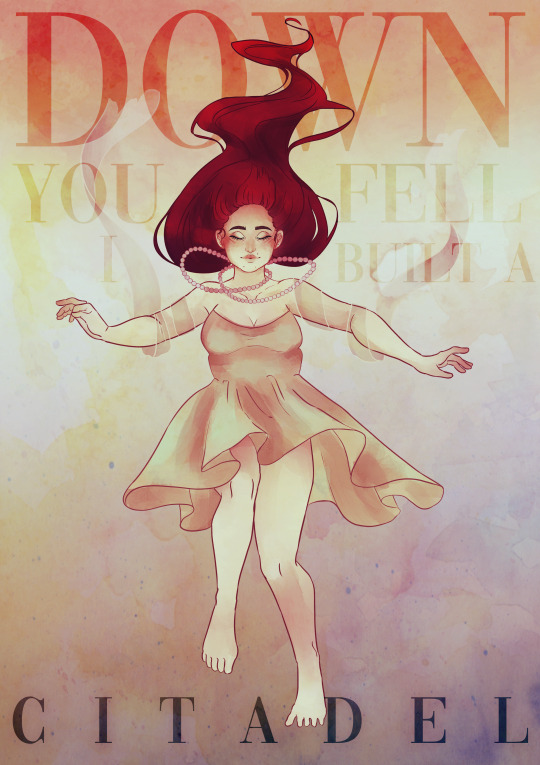
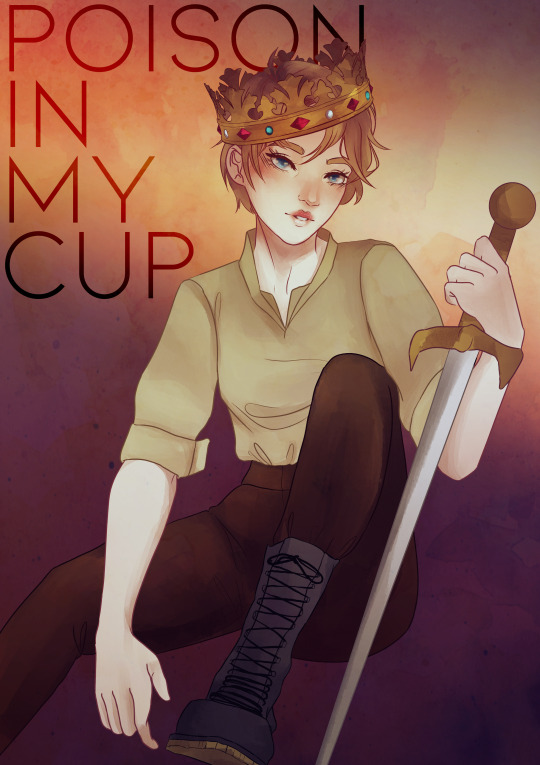
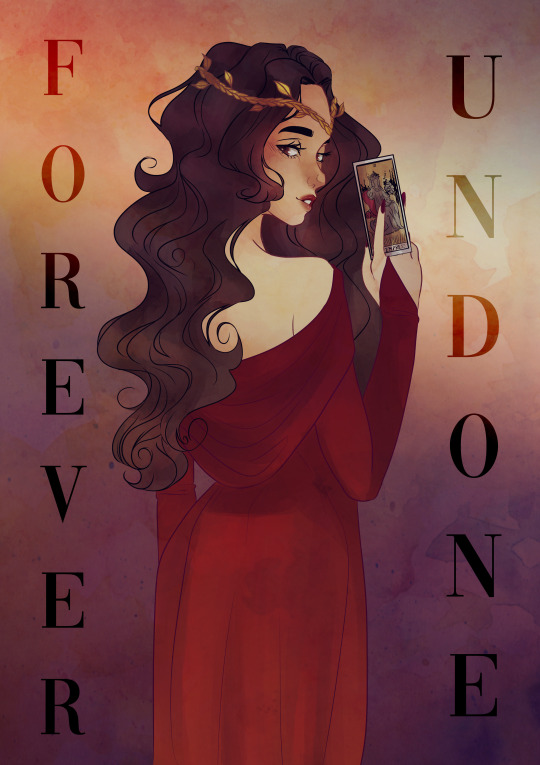


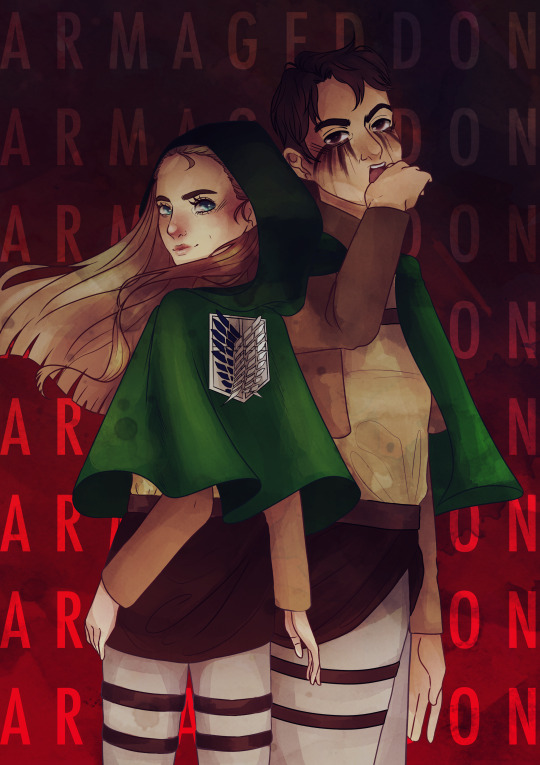

Okay so!!! Last weekend was one of the COOLEST WEEKENDS of my life wherein I hung out with my friends from the Bookish Songs Collective to celebrate Victoria's birthday. I wanted to draw them gifts, so here I drew each member as one of their songs. (Which all rule and you should stream them now)
Victoria Carbol - Citadel
Kaya Hass - Bitter
ARCANA - Forever Undone
Ellyse Moir - The Sun
Tessa Barcelo - Bad Penny
Kendra Dantes & Nino Tosco - Armageddon
Giorg¡a - Fly or Die
#full disclosure that dragon is a 3D asset that I mostly traced#because ur girl Cannot Fucking Draw Dragons#but for chiara i cheated#no for real these songs are so good#and a lot of them are VERY under-appreciated#i implore you to listen to them all!
4 notes
·
View notes
Note
Ok I am a single follower but I like hannibal tv but would enjoy ur movie thoughts I like some of the books too and have been meaning to get around to the movies 😳😳
OKAY I'M EDITING A READMORE ONTO THIS LOL I REALIZED THATS SOMETHING I CAN DO! so now my incredibly waaayyy too long answer abt my thoughts on 2002 will is under there. apologies bc this is less "movie thoughts" and more "2002 movie will thoughts" but well thats how the chips fell
GOD okay sooo for the record i am reading the red dragon book and am like 7 or 8 chapters in and full transparency im not like. enjoying it lol. the book pisses me off with its misogyny (all the women in it are either dead or it feels like you're supposed to think theyre Selfish Bitches or theyre just there for like. bizarre and uncomfortable sexual moments like the guys talking abt that woman in the elevator, or that one part of mrs. leeds diary which is like. i guess could be there to Show Her Humanity or whatever but 1. there are more ways to do that 2. the book doesnt seem particularly concerned with her humanity considering she's barely even given a first name and so far the novel hasnt seemed to disapprove of how will thinks of her as a possession of her husband) and its inconsistency with will's most important character trait or whatever (he's so intensely, extremely empathetic towards EVERYONE, even serial killers, which makes him really good at finding them! and he can never turn this off, to the point where every time he has a conversation with someone, he ends up mimicking the way they talk, even if he tries to stop! but also he never empathizes with the victims or HIS OWN FUCKING WIFE? HELLO? so it really feels less like "extremely strong empathy for everyone that he cant control" and more like "he can empathize with serial killers extremely well and also other people if we want to Make A Point in one scene instead of letting the point show through the whole book") BUT UHHH ANYWAY. MOVIE THOUGHTS. THE MOVIE THOUGHTS YOU ASKED FOR COMING RIGHT UP!
okay this is what i am worried will either 1. draw annoying tv will graham stans to my blog like flies or 2. end with me being hanged in the town square BUT. it must be said. i prefer 2002 red dragon will graham to tv will graham. and quite frankly? so far? i think 2002 red dragon will graham is better than book will graham. i cannot lie.
my reasoning: because 2002 will actually empathizes with more people than serial killers and his boss! y'know! like you'd assume someone with constant extreme empathy would! the difference between the first scene with molly in the book vs in the movie are SO striking to me now that i've read that part of the novel. in the novel he seems very... rough, i guess, and like he doesnt care about molly's worries. he doesnt seem to see things from her perspective, which especially feels like a kick to the gut because MOLLY! SEES! THINGS! FROM! HIS! PERSPECTIVE!!! she literally empathizes with him more than he does with her! what the fuck! MEANWHILE in the movie, he does seem to care about her. his assurances that he wont get too involved seem like assurances rather than him trying to get her off his back. he hugs her and tells her he loves her and i actually believe that yeah, he loves her, he knows she's worried about him, and he wants to comfort her and ease her worries. and the victims! AGAIN such a stark difference to me! in the book, will is like... uncomfortable empathizing w the red dragon, of course, but he doesnt seem to empathize with the victims all that much, ESPECIALLY not the women. he doesnt care about them. he sees them as possessions belonging to their husbands and its so fucking gross. despite already suspecting that the red dragon chooses families based on the women, he decides to waste time focusing on the husbands as a way of "asking permission to look at [their wives]." what the fuck? meanwhile in the film, he feels for the victims so much that he can barely even say that the kids were shot in bed! when he watches the tapes, he focuses on the women! because that's his fucking job!!! and we see him empathizing with them! wow!!
siiigh okay im gonna stop talking abt the book vs the movie now bc again im only like 8 chapters or so deep. but now we come to tv will vs. 2002 will, which is admittedly gonna be more subjective and part of that it bc i cant remember a whole lot of specifics from the show bc my memory is Very Bad. but anyway
let's get the shallow stuff out of the way. yes i prefer ed norton's face to hugh dancy's. call hugh dancy "gender" or whatever have your fun i support you and your right to call any blood covered man a gender but by god is that not even REMOTELY my experience. next shallow thing to get out of the way: ed norton's line delivery is like music to my FUCKING ears compared to hugh dancy's i am so sorry. like the jokes about will shaking like a damp chihuahua before taking 5 minutes to stutter out "he's killing them....... On Purpose, jack." are funny and all but christ i had SUCH a hard time watching the show bc of that im not lying. literally hearing 2002 will just say "he's not keeping them. he's eating them." nice and quick, matter of factly is better than well im actually gonna end that sentence there but you get the idea. like YESSS you little blonde bitch get to the point i love you!!!
OKAY NOW less shallow points but also less uhh idk man i just dont remember a lot of hannibal. but basically: after seeing how caring 2002 will is, i'm kind of... idk i'm just so over tv will and how abrasive and harsh he is in comparison. like i fell in LOVE with how vulnerable 2002 will is, how he feels like he cares deeply about the people around him (and honestly... idk i cant remember a moment in the hannibal tv series that made me feel the way i felt when 2002 will can't say "the kids were shot in their beds". it's like... yeah this is a guy who feels so deeply for everyone around him at all times. i believe that.) and i just dont remember getting that same feeling from tv will. i have been gently spoon fed the most excellent chocolate pudding and everything else in my memory is just a snack pack. i guess tv will has those moments (what comes to mind is when he brings gideon to hannibal's house and is crying and he says "please dont lie to me") but idk they just didnt really do for me what 2002 will does. and then their scenes with reba! wow! i rewatched the tv version after watching red dragon, bc the film version made me tear up, meanwhile the tv version i barely remembered and i wasnt sure if that was just bc of the different mindsets i was in while watching them or what. and ok i just rewatched the tv version again and like... yeah. it's the wills lol. i LOVEEE tv reba SO much she is giving everything in that scene!! she sounds so like... broken, both bc of dolarhyde's apparent suicide and bc of finding out who he was + what he was doing, she sounds so fragile and guilt ridden! she's amazing!! but will. idk. tv will's delivery just seems... idk this feels dumb to say but it sounds like writing. i admittedly LOVE the line "people who study this kind of thing say that he was trying to stop because you helped him." and his delivery there is good. but between tv "you didnt draw a freak, you drew a man w a freak on his back" and the 2002 version, the 2002 delivery seems more genuine while the tv delivery sounds rehearsed. idk overall the 2002 version of that conversation just makes me feel more? its like. idk i can feel the 2002 version gently holding my heart while the tv version is a scene that is nice in h/nnigram gifsets or w/e.
umm ok this is already suuuper long and my brain is getting a bit mushy so i'm gonna start wrapping it up lol. i'll probably compare book will and 2002 will again after i finish the book, and then i miiight rewatch hannibal, or at least parts of s3. but right now my thoughts are basically: book will is a fucking dick who has an easier time empathizing with serial killers than with his wife. tv will is a nothing girl after being so completely catered to + also idk he doesnt have the same fragility that i want from my wills now. and 2002 will is my little caramel apple. he has this delightful vulnerability and feels like he cares so much and empathizes with more people than serial killers and his boss and 4 people in a diner for one scene! 2002 will made me care about will graham! which is honestly kind of a feat!
#long post#like so so so long#my condolences anon and also anyone following me who doesnt want this on their dash#but yeah 2002 will is my booboo bear my cinnamon swirl coffeecake my little heavensent angel#and ed nortons performance made me feel more than hugh dancy's#i think ed norton does a really good job at giving his characters that kind of vulnerability and i LOVE that!!#like yeah whatever 'you're gat arent you dont you just think hes hot' sure say that but also like#have you seen him in primal fear? its a movie thats a firm Its Complicated for me but his performance is so good and he feels so vulnerable#and even in fight club and kingdom of heaven i think he gets that in there! idk i genuinely think he's a good actor#personal#red dragon#if im writing an essay i may as well put it in my tags#asks#anonymous#<- FORGOT TO ADD THOSE TAGS. anyway#EDIT: NOW FEATURING A READMORE LOL.
6 notes
·
View notes
Text
Cycles, Lies, and Memories: On the Thematic and Narrative Incompatibility of Dark Souls 2 and Dark Souls 3
~Warning! This post contains spoilers for Dark Souls, Dark Souls 2 and all DLC, and Dark Souls 3 and Ariandel and the Ringed City! Read at your own risk~
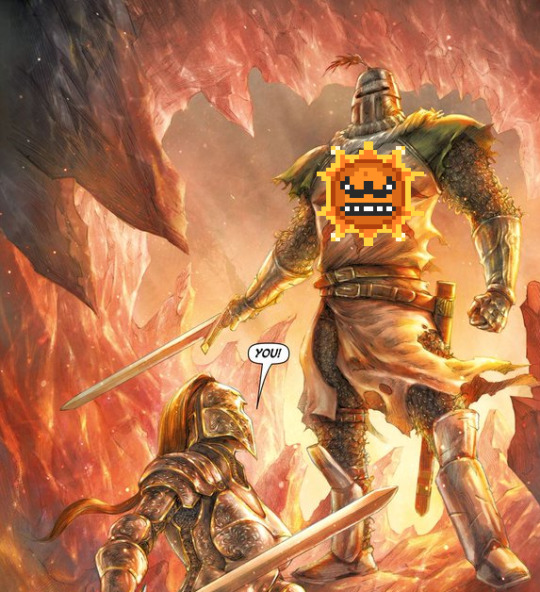
My stance on Dark Souls 3 is likely well known at this point: it's kind of a bummer. The two DLC packages, Ashes of Ariandel and The Ringed City, are in particular rather dire, but after some reflection, I think that the thing that really just rubs me the wrong way about the third installment is how it largely disavows that 2 ever happened. My stance on Dark Souls 2 is probably even more well known by now: it's actually a masterpiece of interactive fiction. Naturally, the fact that 3 likes to pretend that it doesn't exist is distressing to me. Now, especially with Ringed City, there are some concrete references to 2's world. The mysteriously flammable windmill of Earthen Peak and the sexy desert pyromancer outfit feature prominently in the Dreg Heap, the first miserable area of the Ringed City where screaming angels rain holy death upon you nonstop until you find their hidden summoners. Lapp, an NPC you meet here, is going hollow, and seeks the purging monument to restore his fading memories, which pays some lipservice to the powerful themes of loss of identity and self present in the second game but is otherwise completely absent in 3's narrative. These offerings come too little, too late to avert a very considerable gap between the cosmology and thematic elements of the two games.
Let's start with Hollowing. Hollowing is the process by which the undead, over the course of many deaths over the endless march of years, gradually lose themselves to the curse of the Darksign. Hollowing is an important element of Dark Souls 1, and utterly crucial to the story of 2. The process is almost absence in 3. Hollows still exist, but their role in things is alarmingly different. The player character doesn't hollow on death naturally. It's a mechanic that only appears if you do the Londor sidequest and Yoel draws out your "true strength" and manifests the dark sigil. Londor is apparently an entire nation of hollows, with advanced religious institutions and pilgrimages and fancy rings and purging stones to keep the hollows mostly functional. The entire idea of this, has, from the outset, struck me as absurd. There's no possible way that a nation of hollows could function at all in the paradigm of dark souls 1 and 2, because it would be a nation of people who do not even recognize themselves or society at large. The introduction of quick fixes to the problem of hollowing can be written off narratively with retcons to old information and allowed for with the changing, decaying state of the world, but it will never be graceful, and there is no way to reconcile these developments thematically. The desperate search to find a way to stave off hollowing defined some of my favorite characters in 2, like Lucatiel and Vendrick, but evidently you can just rub some purging stones on your face and you'll last to the damn end of the world. It doesn't even make sense in context of Dark Souls 1, where the way to restore yourself was with pillaged Humanity. It feels, in a way, oddly disrespectful to what came before, which is especially strange for a game like Dark Souls 3 that is so chock-full of desperate callbacks and recycled material.
This brings us to another stark contrast between 2 and 3: 2 was fiercely its own thing. It was its own thing to the point that people (myself included, for a time) felt that it was too different from one, that there weren't enough callbacks to the first game. In the end, though, this individuality was what really endeared me to Dark Souls 2. It took the framework from 1 and expanded upon the world and cosmology in a thoughtful, creative way that allowed it to be a game all its own. 3 is like ridiculously not that. 3 lives and dies by its fan pandering, callbacks, and slavish devotion to the order that 1 put forth. This is completely and utterly encapsulated by the two DLC packages, which both take place in worlds that are ripped straight from 1 (and 2). Ariandel is another painted world, filled with references to the first and Priscilla. The Dreg Heap is literally an amalgamation of all the works of man, dragged to the end of the world, and the ringed City is a reskin of Anor Londo, right up to housing a Large Girl Holding it All Together that you can kill to make everything 5000x worse. The bosses are The Last Two Demons, Another Fucking Slog of a Dragon Fight, the Old Monk, and Martyr Artorias. There are no new ideas here. Like, alarmingly so. The chestnut the game dangles in front of you is the mystery of the Dark Soul of Man and the pygmy lords, but, it's actually really hard to care about. I've done this all before, and done it better. Certainly, there's metatextual weight to this sensation due to how everything sort of smooshes together at the apocalypse, but it doesn't outweight how stale it all feels anyway.
Following from this might be my biggest observed discrepency: how 2 and 3 treat the cycle of fire and dark. In 3, the cycle has a definite end in the god danged End of the World, Fire Goin' Out, All Becomes Dust sense. 2, however, proposes a cycle that is well and truly endless, as a sort of karmic constant of the universe. The nature of 2's world is purgatorial, a divine punishment upon those who were self-important enough to deem themselves gods that the rest of us got caught up in. Gwyn and his cohorts are forgotten by the march of time, replaced by new gods, who are then themselves lost and replaced, forevermore. The soul of the ineffable reincarnates Gwyn, Seath, Nito, and the Witch for all eternity, doomed to repeat their mistakes in different forms over and over. Fire and Dark are the same, and one cannot exist without the other. This is entirely in line with the principles laid out in the opening sequence of the entire series: fire created disparity. Dark did not exist before fire. Dark Souls 3, however, takes a different direction entirely, and the Abyss becomes an entity seemingly outside of this dichotomy. At least, according to the locust preachers. They could be full of it. The game does call them out on being an unruly lot who only think about their stomachs. "Where fire resideth, shadows twist and shrivel. But in the Abyss, there are shadows none. Fear not, the dark, my friend." is the line I'm thinking about, which implies the Abyss is some sort of Ur-Darkness that can exist without contrasting light. Either way, there's a lot of contradictions between these two cosmological paradigms. Another example of this is how in Dark Souls 3, the old gods of Lordran are still a big deal, with like three different Divine Cities of Wonder squirreled away where agents of the old aristocracy still venerate Gwyn's Great and Mighty Sunlight Penis. Part of this seems to be a lack of original ideas to draw from, but it also betrays a cosmological bias towards the finders of the First Flame. The difference in the way that the universe treats Gwyn and company in Dark Souls 2 and 3 is a huge part of what drives them apart as narratives that can coexist in the same universe.
Aldia, Scholar of the First Sin, and all around Guy Who Knows About Stuff, seems to have the right of it. One of the major points of Dark Souls 2 was the futility of the first game's ending choice. Whether one links the fire or leaves it to fade does not matter within this eternal cycle. If linked, the flame will always fade again. If left to gutter, someone will always come along to stoke the fire once more. Mankind's "true shape", as posited by Vendrick, will never be realized because of the interference of fearful gods. Humans were descended of the Dark Soul, the soul that stands in contrast to the brilliant energies of light and fire that Gwyn, Nito, and the Witch found, and the gods hated it. They felt it was a threat, and so went against the natural order of things to prolong their own age of fire and used their fantastic power to curse humanity with transient forms. The most powerful lines in the series are delivered by Aldia: "No matter how tender, how exquisite, a lie will remain a lie." By his estimation, there are but two paths: inherit the order of this world, or destroy it. He is not referring to linking the fire or embracing the dark, because he knows that those are the same thing. To destroy the order of the world is to overcome the curse, to transcend it, to render the ultimatum of the gods ineffective. Gwyn's meddling left humanity with the choice of either continuing his vainglories to stave off Hollowing, or to defy him and become detestable creatures of the dark without self or identity. Aldia staked everything he had on finding a way to remove the curse, and ultimately lost it all in his endeavors. What those were are a matter for another time, but if you're asking, I think he tried to create another First Flame like the witch did. Honestly, I think he met with more success than the Witch of Izalith, because at least he didn't create a demon race, and he does seem to be beyond the curse.
The second ending of Dark Souls 2 is one which is available if you do all the DLC and collect the crowns of the kings, and speak to Vendrick in his memory. By collecting the crowns of true and almost true monarchs, you accumulate enough power in the crowns to overcome the Curse of Life. You don't cure or remove it, but by wearing one of the crowns, you become immune to hollowing. You can die as many times as you can imagine, and still retain your sense of self. The cycle of fire and dark is an allegory to the Buddhist concept of Samsara: death and rebirth. However, it is not a total transplantation. It finds roots in Samsara and Nirvana, but in Souls 2, the end result of Nirvana is significantly different, perhaps unattainable. In Buddhist doctrine, the ultimate release from Samsara comes from the quenching of the three fires, or poisons, of passion, ignorance, and aversion, becoming a being of "no-self." Way smarter people than me have talked about this a lot and my analysis is extremely pedestrian, but the idea of no-self comes into conflict with the ultimate goal of removing hollowing: retention of self. The iconic line, "The Curse of Life is the Curse of Want", is a very Samsara-tastic sentiment, but ultimately, enlightenment in Souls 2 is more straightforward than in Buddhist doctrine, as beings of no-self are acknoweledged by scholars to be somewhat paradoxical concepts. I think I've gotten slightly off track here. But that's good! Games that give you a lot to think about are good. That's my opinion and you can put it on a t-shirt. OKAY LET'S MOVE ON, BACK TO THE SECOND ENDING.
What happens is that Aldia confronts you after Nashandra's defeat, not to actually stop you or really do you harm but to simply test your convictions. Do you embrace the lie, or do you use your insight and the power of the crowns to search for a different path? By leaving the room, you choose to search for something different, and Aldia's disembodied voice accompanies you and muses about the difficulties ahead. There is no path. Beyond the scope of light and the reach of dark, you'll have to make your own. It's an extremely uplifting and affecting conclusion to the game. It's imperfect. It's not enlightenment, exactly. We still seek an answer, insatiably, but it is a form of transcendence born of a deep dissatisfaction with the order of the world, a sort of affirmation that to yearn for something better is not evil. It's hopeful and melancholy at the same time, a powerful conclusion to a personal journey, and perhaps the start of another. The fate of the world may not have changed, but the fate of the bearer of the curse has, and there is value in that. The search for truth is what gives the truth meaning. The questions the game raises about what it means to be a "true monarch" are thought provoking and powerful, encouraging the player to reject traditional models of power and monarchy by throwing like all of the shade ever at most of the kings to have ever ruled in the world of Dark Souls. Vendrick did all of this amazing stuff with the power of his soul, but in the end, was too cowardly to amount to anything. Gwyn was a vainglorious liar afraid of his own shadow. The old Iron King built a fucking magma castle just because he could. The only king to not get roasted is the Old Ivory King, who sacrificed everything for the wellbeing of his subjects, which is what we come to understand as the duty of a True Monarch: to not take the easy, convenient path.
In Dark Souls 3 there is absolutely no mention of any of this like EXTREMELY IMPORTANT SHIT where there's an undead who DOESN'T GO HOLLOW AT ALL UMM??? and the apocalypse is encroaching on a world where apocalypse should have no real meaning. The world has already ended and been reborn countless times before this. Kingdoms rise and fall and only Straid of Olaphis seems to remember the ones that came before because he spent the long centuries as a dang rock. It's not just that it feels like Dark Souls 2 never happened. It's that for Dark Souls 3 to work at all, it -needs- to have never happened. A lot of this probably comes from the fact that different teams worked on these games with different visions, but I feel like it's really disrespectful for the returning Miyazaki team to just disregard the genuinely fantastic work the "B team" did. This is especially true when you consider that Souls 3 is, as stated, kind of a fuckin bummer my dudes. It gives off the distinct impression of a game that never really wanted to be made. It feels reluctant to show its true self, which is almost unheard of in the Souls series, which in all other instances has worn its own self on its sleeve since the very beginning. Even after all this time, I don't know what Dark Souls 3 is really trying to say. It stands in opposition to its own predecessors despite feeling the need to draw so much from them, and this dissonance is ultimately the final nail in the coffin. It's a shame it had to end like this, but it also feels somewhat inevitable after the response that Dark Souls 2 got from ~angry gamers~. I hope that whatever Miyazaki and his team work on next, they can put their all into without reservation, and in the meantime, other developers try their hands at the souls formula. I want more games like Salt and Sanctuary and Nioh! ...even if it does mean I have to put up with the occasional Lords of the Fallen.
5 notes
·
View notes